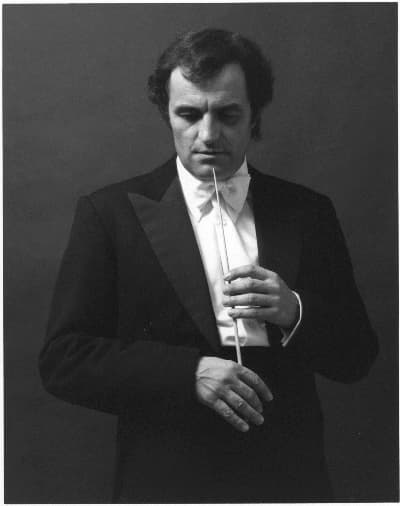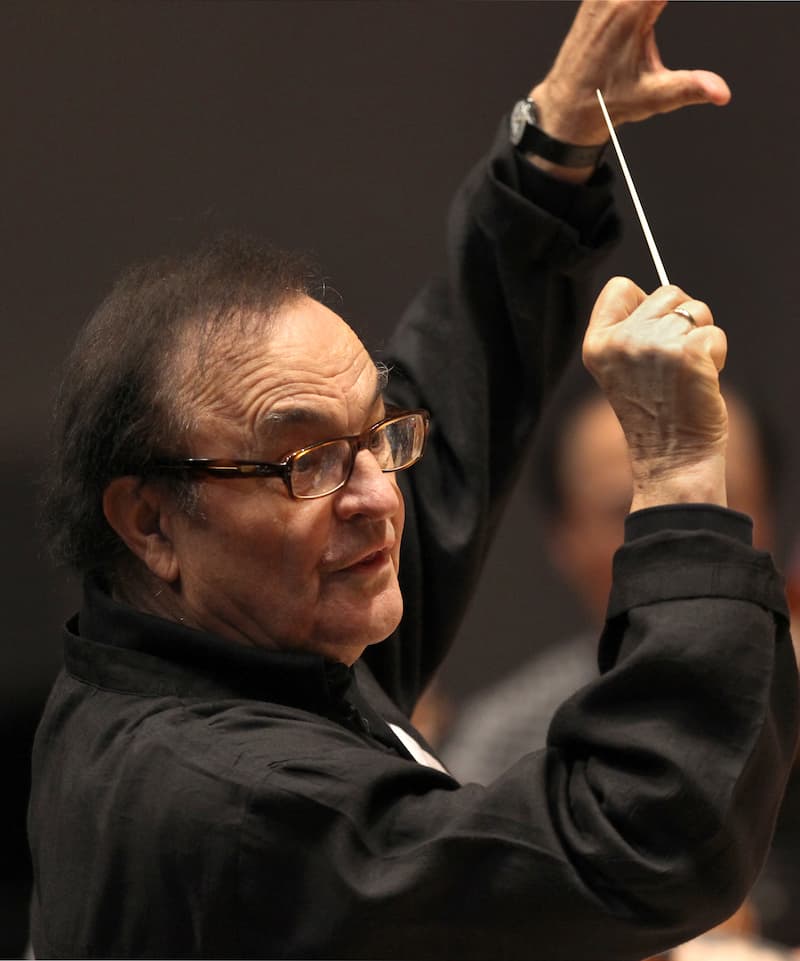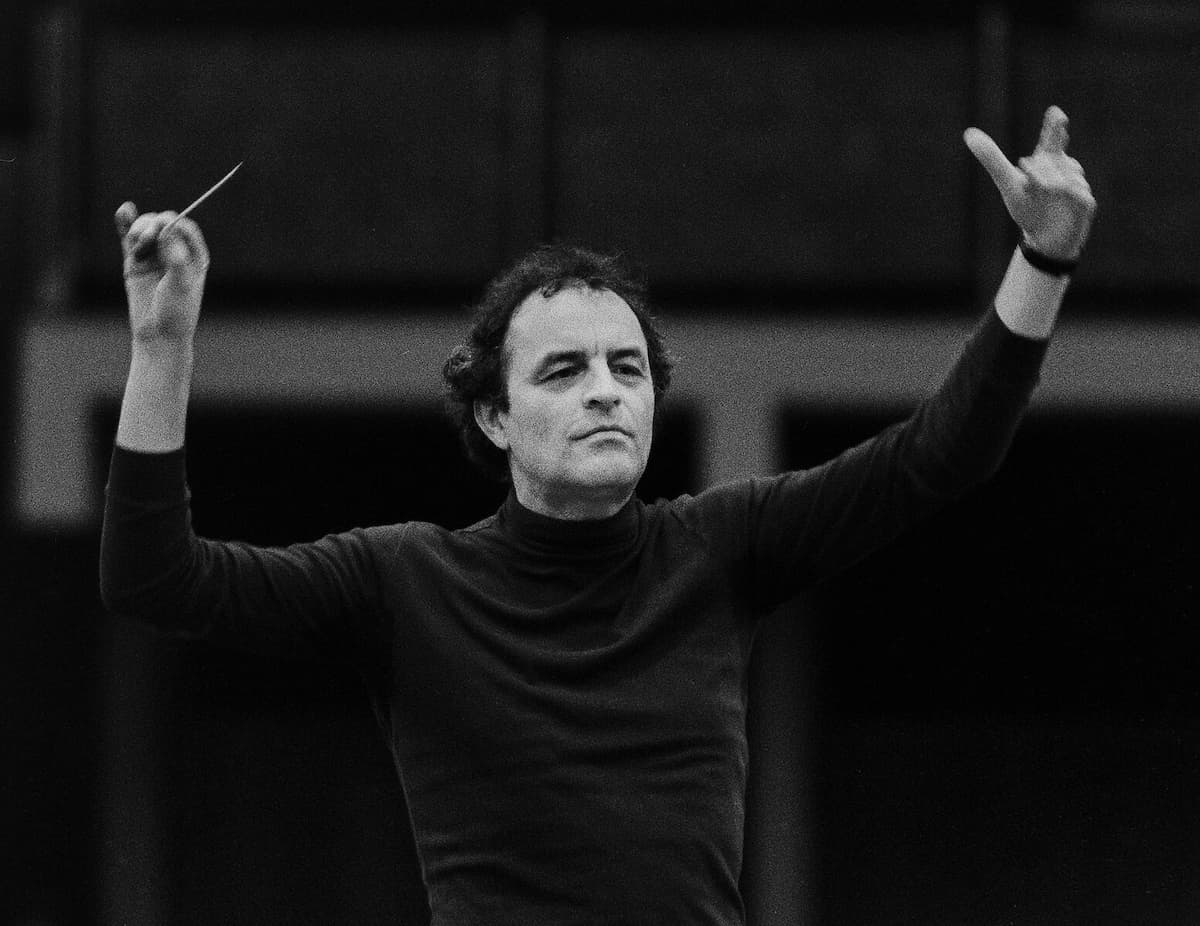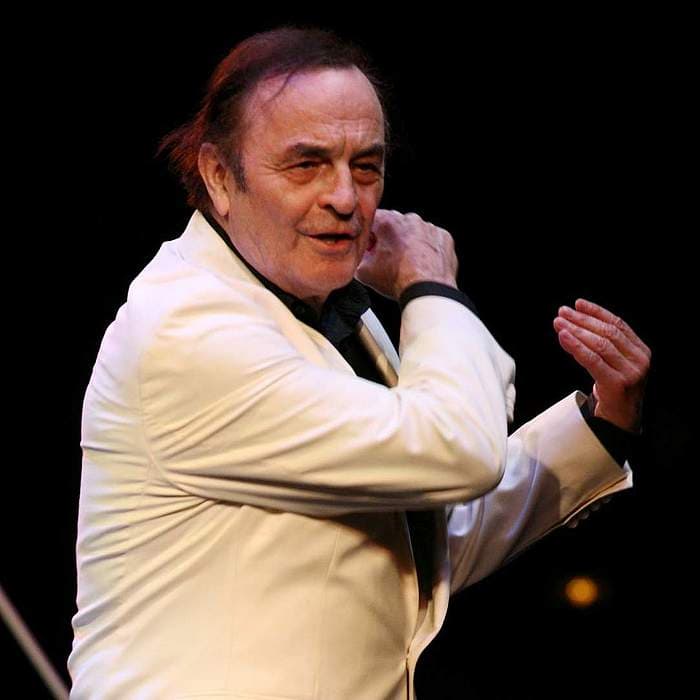Swiss conductor Charles Dutoit is renowned for polished and idiomatic interpretations of an eclectic array of musical styles. He has energetically travelled the globe in search of excellence and demonstrated a great affinity to French and Russian music, specifically in 20th-century tonal music. In this repertory his natural gift for colour and lyric line “are shown to excellent advantage.”
Charles Dutoit Conducts Stravinsky’s The Rite of Spring, Part 1
Brass Band

The young Charles Dutoit
Charles Dutoit was born in Lausanne, Switzerland, on 7 October 1936. His grandmother on his mother’s side was Brazilian, and his father hailed from Savoy. As he explained in an interview, “My parents met in the canton of Vaud in the early 1930s, and his father was a captain instructor at a cavalry school in the Swiss army. He lost everything during the Great Depression, and his first wife let him.”
Charles was only two years old when the Second World War broke out. Although he was only a small child, he wanted to join the school brass band. He writes, “I loved the military uniforms and equipment, which were typical of the war period. The children wore military caps with the Vaud coat of arms and a small embroidered emblem, which reminded me of pictures of my father in the army.”
Sergei Rachmaninoff: Symphony No. 3 in A Minor, Op. 44 – I. Lento – Allegro moderato (Philadelphia Orchestra; Charles Dutoit, cond.)
Trombone vs Violin

Charles Dutoit
Dutoit’s musical career started in a choir. He started to sing solfeggio at age six but didn’t take up an instrument until age 11. As he disclosed, “I was more gifted in the sciences. Art history, languages and the humanities did not interest me then. My father wanted me to play something to develop my culture; the band had these fancy uniforms with an impressive cap, so I took up the trombone. After two days of awful noise, my father told me that it was not an instrument to play in an apartment, so he suggested the violin, and I was a lousy pupil.”
Dutoit made friends with the Italian child prodigy Roberto Benzi, who was conducting Mozart and Liszt at the age of 13. Both joined a small chamber orchestra in Renens, and one day, the director was late, “and my friend asked me if I would have enough courage to take his place.” Dutoit helped with rehearsals, and as a thank you, the director let him conduct Mozart’s Eine Kleine Nachtmusik in concert. “I was 14 years old at the time, and I can say that it was my debut.”
Charles Dutoit Conducts Rimsky-Korsakov’s Scheherazade, Op. 35
Lausanne Conservatoire

Charles Dutoit, 1983
When he was 15, Dutoit took a job playing violin in the orchestra for Sunday mass. “I came to know every part of the whole mass repertoire,” he explained, and after entering the Lausanne Conservatoire, led a double life in science and music. He studied the violin with Wachsmuth and the theory of music with Mermoud and Haug, from whom he also acquired his early education in conducting. Concordantly, he studied mathematics at the University.
After graduating with a degree in mathematics and receiving first prize at the conservatory, Dutoit decided to turn to music as a career and broaden his culture. He studied languages, including English and Italian, art history, sociology, politics, economics and the social context in which music and the arts are created. He also studied percussion and piano and music theory, and he switched to the viola.
Claude Debussy: Printemps (Montréal Symphony Orchestra; Charles Dutoit, cond.)
Geneva and Beyond

© Aline Paley
Dutoit went to Geneva to study conducting more seriously, and he initially studied with Samuel Baud-Bovy. He also met Ernest Ansermet, the music director of the Orchestre de la Suisse Romande. “He became my mentor,” said Dutoit, “although he was never my teacher.” Ansermet did allow Dutoit to attend rehearsals. “He was very impressive and intelligent and had a great capacity for explaining and relating things with a humanistic approach.”
Other influences included the Italian conductor Alceo Galliera, Charles Munch at Tanglewood and Herbert von Karajan at the Lucerne Festival. In fact, Karajan would task him with conducting the premiere of de Falla’s ballet The Three Cornered Hat in Vienna. Dutoit won his first award as a conductor at the age of 21. As he proudly explained, “This wasn’t too bad when you consider that when I was 12, I barely had an understanding of music.”
For more of the best in classical music, sign up for our E-Newsletter
